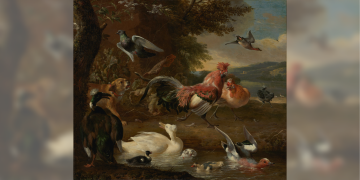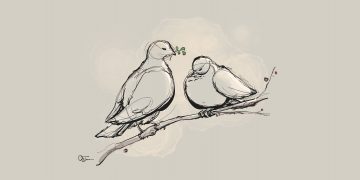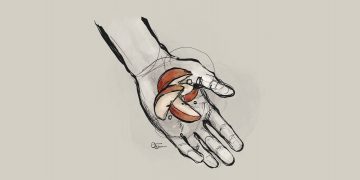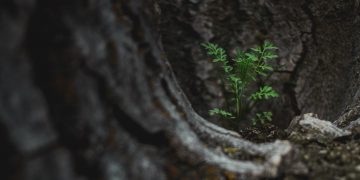DISCLAIMER: The following only represents the views of the author and does not reflect the views of Island ECC.
—
As a child, I was gifted a rocking horse. I welcomed the precious antique into my collection of toys but failed to quite understand its value, as well as the fact that I had suddenly become responsible for the horse’s upkeep. All I saw was potential: potential for a really good time. By mid-morning, I decided to restyle it. I cut the hair off its tail and mane, scraped patterns into its wooden coat, and recolored the saddle with bottles of nail polish. I destroyed it within a single playtime. This rocking horse, which had survived moves between countries and even a war, had not survived me. And yes, I was old enough to have known better. My family forgave my crime, of course—although it saddened them, they had the love and understanding to forgive. They knew I did not realize the severity of my actions. Since then, I hope my appreciation of the things entrusted to my care has improved ever so slightly, but I believe we all have a long way to go when it comes to caring for the precious gift God has called us to foster.
“Whoever has ears, let them hear.” (Matthew 11.15 NIV)
The problem is: our horse breathes, bleeds, and aches. Not only that: our horse is also God-given. Put in blunt terms? When all we see is potential without consequence, our horse ends up groaning and bludgeoned to the ground, begging us for mercy. The two great commandments we are to live by—to love our God (with our whole being) and to love our neighbor (as we love ourselves and as Christ loved us), Matthew 22.37-40— can work together as the yeast of change [1] in our carrying out of the fundamental duties God entrusted us with from the very beginning. In order to love God fully, we must also love and care for His Creations—including for every created being in which God breathed a living soul, as well as for the earth, our home. But to care for His Creations also means to care for and love our neighbors, even when this requires changing our current ways. Early Christians lived this out in a way we have since pushed aside at great costs, not least of those the values God most wishes to see displayed in us: love, mercy, and compassion.
In order to love God fully, we must also love and care for His Creations—including for every created being in which God breathed a living soul, as well as for the earth, our home.
“[All of us who reflect the Lord’s glory] are being transformed into his likeness with ever-increasing glory, which comes from the Lord, who is the Spirit” (2 Corinthians 3.18 NIV)
As a Christian vegan [2], I see veganism as a practical expression of discipleship. It has been an intrinsic part of my faith in Christ for nearly as long as I have known Him. While I go about striving to align my deeds with the wishes of God’s heart, I have come to realize that Christian veganism can also be a form of evangelism. In the face of our world’s war against Creation, Christian veganism seeks to put faith into practice through choice, for the glory of God. It takes a conscious stance for change, actively pursuing biblical integrity in Dominion, Stewardship, and Righteousness. We will explore each of these aspects over the next few posts, but if you take away one thing, let it be this notion: how we treat God’s Creation is how we treat God (Matthew 25.34-46).
I have come to realize that Christian veganism can also be a form of evangelism. In the face of our world’s war against Creation, Christian veganism seeks to put faith into practice through choice, for the glory of God.’
What if we started living as though we truly believed, where our deeds and conviction align through faith? As followers of Christ after His image, we have been called to till and keep, to make order out of chaos by living life with radical vision for His Kingdom—one modeled after His higher standard rather than our own, and centered around Christ in anticipation of His return. This is in essence what is known as the Creation Mandate: what we do now, with the Creation entrusted to our care, in preparation of the new world matters. Christians, the salt and light, must employ themselves to cultivate God’s Creation in accordance with His intent, for it is His ideal we must spend life seeking to emulate.
This is in essence what is known as the Creation Mandate: what we do now, with the Creation entrusted to our care, in preparation of the new world matters.
“The earth is the Lord’s, and everything in it, the world, and all who live in it” (Psalm 24.1 NIV)
——
[1] See: The Parable of the Leaven/Yeast.
[2] Veganism refers to one’s choice not to consume any products derived from animals or resulting from their exploitation. Vegans observe a total plant-based diet: one that excludes animal by-products (such as dairy, eggs, and honey) as well as animal-flesh (including that of sea animals). Beyond their dietary choices, most vegans strive for ethical consumerism in as many areas as can reasonably be achieved. For example: they typically refrain from sponsoring animal-skin industries (e.g: purchasing newly produced leather, wool, fur, or silk—though thrifted/recycled skins may sometimes be an exception).
——
Continue reading: Part 2
DOMINION — on Loving God’s Creatures. “Man was created… vegan?!”
——
Further Reading:
Damien’s CHRISTIAN VEGAN GUIDE































































